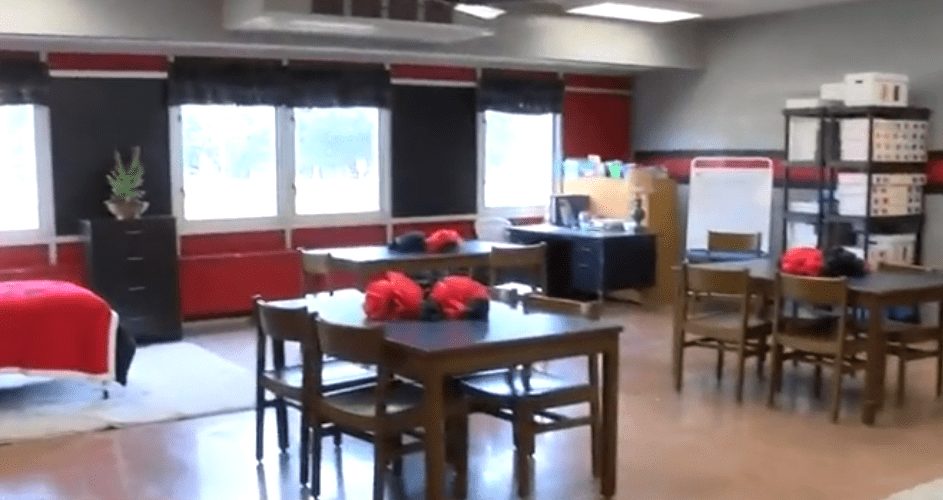
Life Skills Lab Makes a Difference
Tyler Foster Ritchie ’16, ‘18 MATSP of China Grove is bullish on life skills labs. So much so that he established one this past October for the students with special needs he teaches at South Rowan High School.
In 2018, Ritchie earned a Master of Arts in special education from Pfeiffer University, from which he also holds two bachelor’s degrees. The lab, the first of its kind in the Rowan-Salisbury Schools, aims to counter what he sees as an over-emphasis on traditional academic subjects in school programs for students with special needs; as such, it was inspired by his brother, a person with special needs who should have spent more time in school learning how to live independently.
“It didn’t make sense to me why they focused so much on doing math,” Ritchie said. “Or, why they focused so much on reading stories to be able to tell who the main characters were. He needed to know how to read a recipe and follow instructions, how to go grocery shopping on a budget, how to cook a meal properly, how to keep an apartment orderly and clean, how to do laundry.”
At South Rowan, Ritchie works with students whose intellectual disabilities, traumatic brain injuries and other issues put them at or below the third-grade level. He’s creating a life skills curriculum for them in which the lab serves as a backdrop that includes a bedroom, a living room, a kitchen, and a small market.
So far, the life skills curriculum has developed to point where the students are learning how to perform such household tasks as making a bed, folding laundry and putting it away. They’re becoming adept at making grocery lists, buying groceries and cooking meals. They’re mastering occupational skills and behaviors that will help them gain employment.
The lab, which was funded with donations from nearby churches and includes groceries donated by Food Lion, is the larger of two rooms at South Rowan that are available to Ritchie; in the smaller room, Ritchie teaches the reading and math that the students need to master life skills. The teaching of life skills will “add to instruction” Ritchie provides for each to student to meet IEP goals. He envisions a kind of synthesis of life skills and academic subjects; for example, learning to read and follow a recipe (life skills) can be incorporated into the reading goals of an IEP (academic), just as creating and keeping to a budget (life skills) can help fulfill an IEP’s math portion (academic).
“I’m trying to change the look of special education,” Ritchie said. “Rowan-Salisbury Schools is a renewal district, so we have a lot of freedom. I’m jumping on board the renewal cycle and trying to change as much in the Exceptional Children Department as I can. Our approach is not working for every student; education needs to work for every student. We, therefore, are changing what we need to change in order to make it more successful.”
Ritchie allows that a life skills lab is still a novel concept in special education, that there is not a lot of research on labs. He plans to write a thesis on life skills labs when he pursues his doctorate in special education.
So far, though, the reviews of Ritchie’s lab have been positive. Dr. Christopher Boe, dean of Pfeiffer’s Division of Education, said it “has made a significant difference in the teaching and learning process for the exceptional learners with whom Mr. Ritchie works.”
And Amy Wise, an assistant principal at South Rowan, said that Ritchie has made great progress with his lab.
“The life skills the lab has allowed his students to learn and experience has already made a positive difference in their lives,” she said. “Each student has achieved growth and expanded their adaptive skills in tremendous ways.”